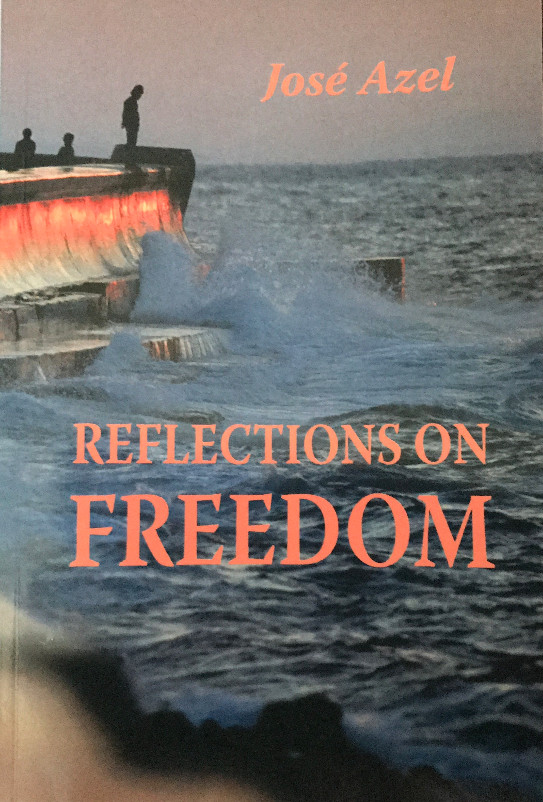| The 74 days war between Argentina and the United Kingdom over the Falklands/Malvinas territories, with less than 3,000 inhabitants, claimed the lives of 649 Argentines, and 255 British military personnel, and of three Falkland Islanders. The war accomplished little and ended with the return of the islands to British control and the Argentine surrender on June 1982. |
|
When asked about the war, the brilliant Argentine philosopher and writer Jorge Luis Borges famously wisecracked that it was like, “two bald men fighting over a comb.”
Borges’s witticism came to mind as I considered that, since the collapse of the Soviet Union in 1991, U.S. Presidents have been unable to articulate a unified and consistent foreign policy. The geopolitical tensions of the Cold War, a term coined by English writer George Orwell, began shortly after the end of World War II, in 1945, and had as its main adversaries the United States (and its NATO allies), and the Soviet Union (and its satellite states.)
During this period, U.S. foreign policy was guided by the intellect of George F. Kennan and a group of colleagues know as “The Wise Men.” Kennan was arguably the most notable Cold War strategist having inspired the Truman Doctrine and the U.S. policy of “containing” the Soviet Union. In 1946, while serving as deputy head of the U.S. mission in Moscow, Kennan wrote his famous Long Telegram (over 5,500 words) outlining a new strategy of diplomatic relations with the Soviet Union.
A year later, writing under the pseudonym “X”, Kennan published an article in Foreign Affairsexplaining why Stalin’s policy of encircling the capitalist world could not be charmed or talked out of existence. Kennan argued that Soviet expansionism had to “be contained by the adroit and vigilant application of counter-force at a series of constantly shifting geographic and political points.” For Kennan, political, economic, and covert actions were the principal tools of containment.
In the tradition of political realism, Keenan emphasized national security based on the principle of balance of power rather than the idealist school of international relations which relies on morality. According to Keenan, American policymakers held unrealistic utopian expectations and sought to make moralistic demands on others based on legalistic concepts and a self-righteous attitude. Keenan’s strategy sought three clear objectives: to contain Soviet expansion, to deter them from acting against vital American interests, and to undermine the idea and practice of communism.
Whatever the relative merits of Keenan’s prescience, the point is that, for the nearly five decades of the Cold War, American foreign policy, under numerous presidencies, held its intellectual internal cohesiveness and consistency. This cohesiveness and consistency ultimately resulted in the defeat of the stated adversary. American Cold War foreign policy was not, “Two bald men fighting over a comb.”
Perhaps the intellectual low point of American post Cold War foreign policy formulation was expressed in 2013 by President Barak Obama. As reported in a New Yorker article by David Remmick, the President, in a display of Napoleonic hubris and historical ignorance, told the author that he did not need any new grand strategy; “I don’t really even need George Kennan right now”- but, rather the right strategic partners. Regrettably, President Obama found his “right strategic partners” in Iran’s Hassan Rouhani and Cuba’s Raul Castro.
Unfortunately, American governing principles of democracy, free markets, limited government, human rights, individualism and more are not universal principles. And the vital interests of our adversaries, and at times even the interest of our friends, do not mirror our own.
The formulation of a cohesive foreign policy is a difficult endeavor that requires policymakers to contemplate the unknowable. And yes, achieving national objectives often requires unsavory entanglements. Winston Churchill, acknowledging that victory over Nazi Germany required cooperation, noted that he “would make at least a favorable reference to the devil in the House of Commons” if Hitler invaded hell.
Lest we find ourselves fighting over an unneeded comb, it is high time that we formulate and articulate a cohesive foreign policy strategy that journeys into the arc of the possible in defense of our vital national interests. We do need a George Kennan right now.
Please let us know if you  this article. this article. |
|
We welcome your feedback.
Abrazos,
Lily & José
(click on the name to email Lily or Jose) |
|
This article was originally published in English in the Miami Herald and in Spanish in El Nuevo Herald.
|
|
|
|
|








No comments:
Post a Comment